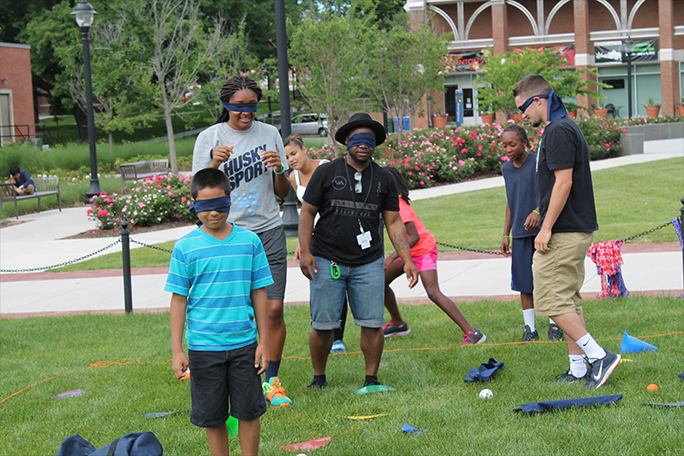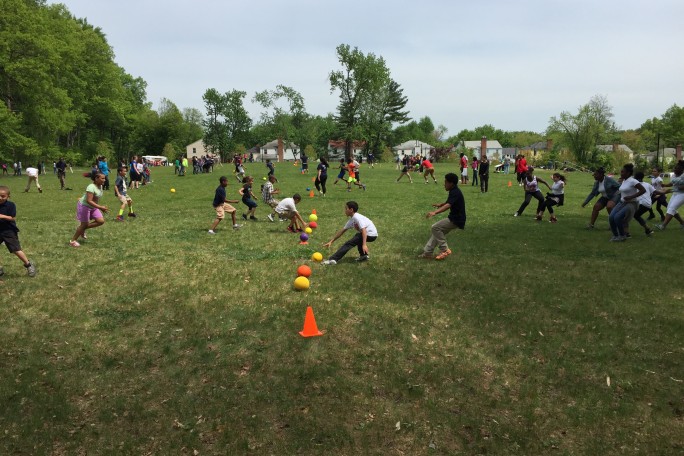Husky Sport personnel would love to spend time with more students and visit more locations. Doing so, however, would create unrealistic expectations, cause us to over commit and run the risk of providing poor programming. For these reasons, we decided to develop something that would allow for us to work alongside new partners in new locations and engage with large groups of students, while also maintaining the principle tenets of our mission and vision. The creation of “Sport and Nutrition Clinics” was our attempt to meet this challenge.
How do clinics work?
An interested party will contact us or we will contact them. Our staff will meet with leaders to develop a plan to co-host a sport and nutrition based clinic. Leaders will decide upon a target number and age of participants, an available location, nail down a date and time, then work to deliver upon a structured opportunity for positive engagement. Once the logistics are set, Husky Sport students and staff will show up for the scheduled event, ready to co-host rotating stations of smaller groups of students, so that a large group of students can all enjoy one big, high energy, highly active, fun Sport & Nutrition Clinic.
Points of emphasis for a clinic:
- Energy, enthusiasm, and fun
- Physical activity and sports
- Interactive nutrition lessons
- Prizes and giveaways
- Divide and engage style participation
- Build and maintain new relationships moving forward
- UConn presence and student development
- Evaluation of the clinic and suggestions for improvement




